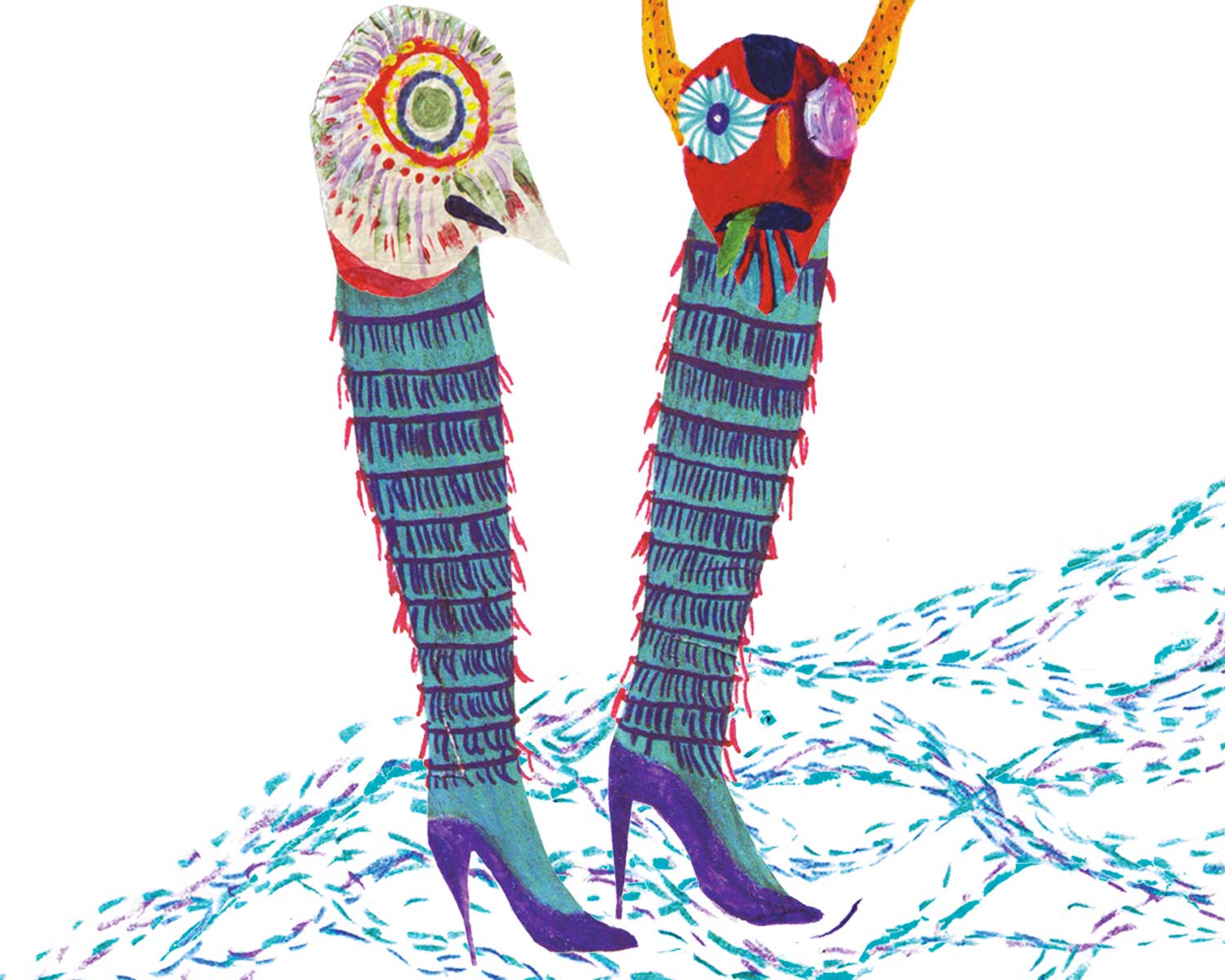
Steven Cohen
- workshop
Steven Cohen has developed a concept of 'body scenography', using the body as a stage, working with mind, breath, movement, time, lighting and objects, props and costumes as an of extension of body.
The workshop consists of several elements; there will be a practical and physical element, as well as a theoretical development of an 'own' project, where attention will be given to the elaboration of a personal idea for a performative action/series of actions that each practitioner should have in mind. That is to say, a portion of each day we will discuss and nourish and even prepare for the development and eventually for the carrying out of an idea which each artist has the intention to evolve and desires to realise ... be that in a museum, a theatre, in public or in any other space - preferably on this planet.
There will be short playful sessions exploring ways of moving (or not), individually and collaboratively. Steven Cohen develops new vocabularies of movement through re-defining the familiar by restricting the body with strange footwear, cumbersome costumes, impeded senses, for example. With simple objects we will cultivate a re-understanding of what we might have become over-familiarised to, and take for granted. We will unlearn things together. We will try to intensify ways of being present and communicative.
For the people willing to risk daring to see themselves, we will also work with videoing sessions and spend some time regarding ourselves 'from outside in'.
Steven Cohen
Steven Cohen is a performance artist who stages interventions in the public realm and in gallery/theatre spaces. His work invariably draws attention to that which is marginalised in society, starting with his own identity as a gay, Jewish, white South African man.
Steven Cohen was born in 1962 in South Africa and lives in Lille, France.
One of his best-known performances is Chandelier (2001/2), in which Cohen, dressed in vertiginous heels and an illuminated chandelier tutu, interacted with residents of a squatter camp in Newtown, Johannesburg, as it was in the process of being destroyed; the work exists as both live performance and video documentation of the public intervention. Chandelier was presented alongside Dancing Inside Out and Maid in South Africa at the Centre Pompidou in Paris as part of the Festival d'Automne in 2008; in 2009, Cohen premiered Golgotha at the Centre Pompidou as part of the same festival, and in 2011 The Cradle of Humankind.
Performances have taken place at venues and festivals including the Munich Opera Festival, Bavarian State Opera; the first Aichi Triennale, Japan; Festival Escena Contemporánea, Madrid; Danae festival, Milan; La Bâtie - the Festival of Geneva; C/U (Body Mind) Festival, Warsaw; Les Halles de Schaerbeeck, Brussels; Festival les Anticodes, Brest, France; Oktoberdans festival, Bergen, Norway; Festival d'Avignon, France; and the National Arts Festival, Grahamstown, South Africa, among others.
Recent group exhibitions include Black Milk: Holocaust in Contemporary Art at the Museum for Contemporary Art, Roskilde, Denmark (2014); My Joburg at la Maison Rouge, Paris (2013); the 11th Havana Biennale (2012); Revolution vs Revolution at Beirut Art Centre, Lebanon (2012); No Fashion, Please: Photography between Gender and Lifestyle at the Vienna Kunsthalle (2011); ARS 11 at Kiasma Museum of Contemporary Art, Helsinki (2011); and Dada South? at the South African National Gallery, Cape Town (2009-10).
From 2003 to 2008 Cohen was an associated artist of the Ballet Atlantique/Régine Chopinot. In 2009 he took up residencies at the Baryshnikov Arts Center and the Center for Performance Research in New York.
In September 2013 Cohen's 'uninvited public intervention' Coq/Cock at the Trocadéro in Paris resulted in his arrest on charges of 'sexual exhibitionism'; a Paris court found him guilty, but imposed no penalty against the artist.
Illustration
The Cifas asks contemporary artists to illustrate its communication. Delphine Heymans illustrated the workshop led by Steven Cohen.
Delphine Heymans gathers stories and pictures throughout her encounters. Then she puts them together in dialogue with her pencils to tell social rituals, relational mythologies and poetry of everyday life.